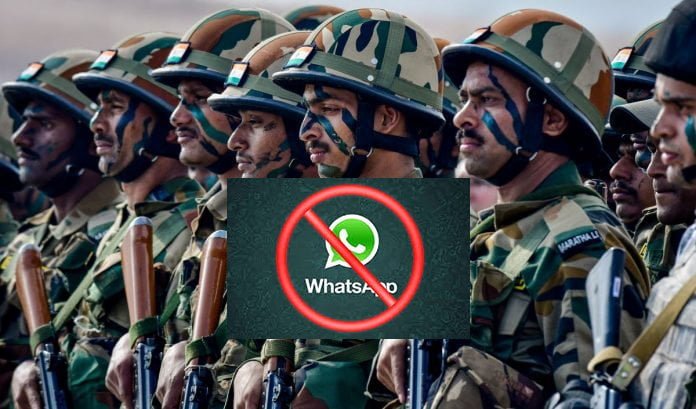In a boost to ”Atmanirbhar Bharat”, the Indian Army has developed and launched a secure messaging application named the “Secure Application for the Internet (SAI)” that supports end-to-end secure voice, text, and video calling services for Android platform over the Internet, the Ministry of Defence said here on Thursday.
The smartphone app features end-to-end encryption to secure all communications, including texts, voice, and video calls and has been made available for Android devices at the moment. According to the Ministry of Defence, the SAI app has a flexible code base that can be programmed to specific needs of India’s armed forces, and all data will be relayed through local, in-house data servers.
Also Read Chief of Hizbul Mujahideen Killed in Srinagar Encounter by Indian Troops!
According to the press release, “the SAI app will feature an interface and operations similar to commercially available messaging services such as WhatsApp, Telegram, and other encrypted communication apps”.
The application has been vetted by a CERT-in empaneled auditor and the Army Cyber Group.
Also Read Coronavirus in India: Active cases fall below Six lakhs, 48,648 New cases in the last 24 hours.
SAI was developed by Colonel Sai Shankar, the commanding officer of a signals unit in Rajasthan, and then upgraded to military-grade standards. Defence minister Rajnath Singh, after reviewing the working of the app, complimented Col Shankar for developing the application with “skill and ingenuity”.
Earlier India banned 59 Chinese apps from app stores citing national security and threat to privacy. The defence ministry had instructed soldiers and officers of the Indian Army to delete 89 apps from their mobile devices, including news apps like Daily Hunt, dating apps like Tinder, social networking apps like Facebook, TikTok, video-conferencing apps like Zoom and gaming apps like PUBG. This was done to prevent “sensitive information” from being leaked.
Popular social media apps Facebook and Instagram have also been banned. Last year, the army had instructed its soldiers and officials to stay clear of using WhatsApp for official purposes. Officers posted on sensitive posts were also asked to delete their Facebook accounts. Carrying smartphones onto bases and dockyards has been prohibited.
This came after the army observed Chinese and Pakistan’s online espionage agents attempting to obtain classified information and data. There were instances of ‘honeytrap’ through social networking sites.
While hackers and cybercriminals are believed to have techniques to bypass end-to-end encryption by tricking individuals into downloading malware that reads screen content, the end-to-end encryption standard is still believed to be a benchmark standard in a secure communication app, which the SAI app is said to enable.


